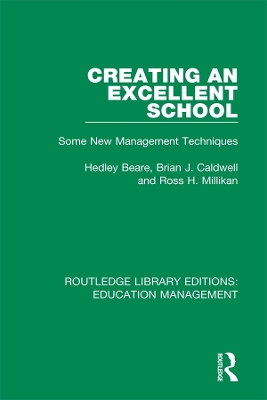Educational Management
2 total works
Creating an Excellent School
by Hedley Beare, Brian J Caldwell, and Ross H. Millikan
Originally published in 1989. The pursuit of excellence is much discussed with reference to education, but the question remains, ’How can a school become excellent?’ This book demonstrates that excellence depends on good management which, in turn, depends not only on a clear understanding of good management theory, but on the ability to translate theory into practice.
The authors offer profound insights into three crucial areas of leadership: culture, structure, and public accountability. Drawing on areas outside education, such as advertising and business, they discuss many innovations that are already current - flexitime, the vertical curriculum, mastery learning, community support - and depict ways in which these can be brought together into a total educational experience. More strikingly, however, they look ahead, examining the potential changes to our concept of schooling: for instance those brought about by the growth of information technology. This book emphasises that at the heart of outstanding schooling are visionary leadership, a clear sense of purpose, and creatively conceived and flexible support structures.

